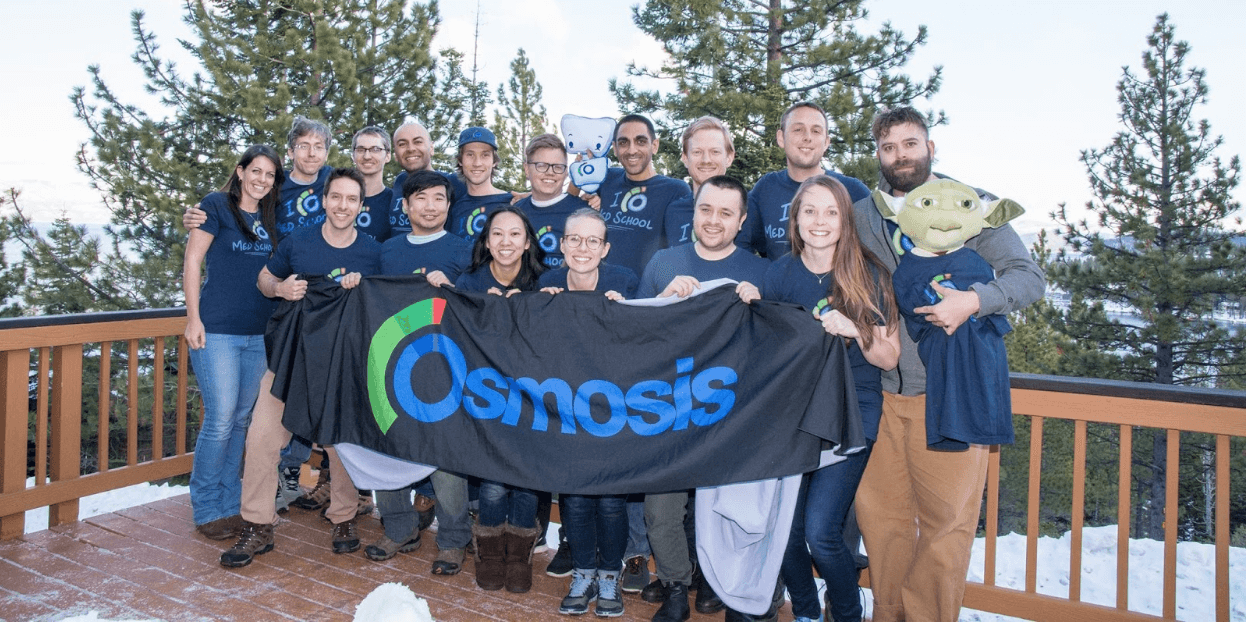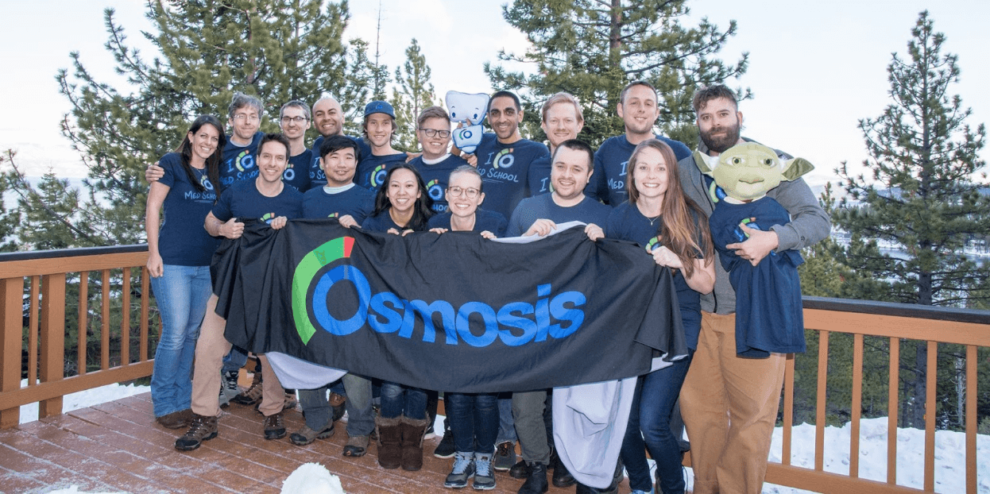When Alan Patricof, co-founder and managing director of Greycroft, LLC, first heard about a small medical education startup out of Baltimore called Osmosis he was immediately intrigued.

The 83-year-old prolific investor, who is widely known as an early pioneer in venture capital and private equity, is no stranger to medical startups. Patricof was involved Vitals and Medscape‘s early-stage deals, both of which were later purchased by WebMD. Patricof was also an early investor in America Online and Apple.
Yet medical education was something new for him.
Patricof recalls first learning about Osmosis from angel investor Peter Frishauf, who he’d worked with at Medscape.
“I asked him for an introduction, and I was very, very impressed with [Osmosis co-founder and CEO Shiv Gaglani],” he told Crunchbase News. Soon after, Patricof was eager to invest in the company, despite Gaglani’s initial reluctance.
“I convinced [Gaglani] to take money from Greycroft even though he was not looking for money at the time,” Patricof said. “And he’s been a dream to work with.”
Besides Greycroft serving as an anchor investor for a $2.5 million seed round of funding, several other organizations and angel investors participated in the financing, including FundRx and former president of Buzzfeed Greg Coleman.
The Seed Of An Idea
Osmosis aims to be a comprehensive, virtual medical library that helps educate patients and caregivers, and anyone needing or wanting more information on certain health conditions. It’s a concept that Shiv Gaglani and Ryan Haynes came up with as medical students at John Hopkins in 2012.
“This all started when we were anatomy partners and wanted to make our lives and those of our classmates easier,” Gaglani told Crunchbase News. “We realized the model of medical education is pretty antiquated, even at great schools like Johns Hopkins, so we started building software specifically for learning healthcare. It’s different than subjects like language and math. Content is constantly changing.” Early on, the co-founders recruited the team that ran the health and medicine section of edtech startup Khan Academy.
Gaglani admits the company was hesitant to take outside money, but he recognized that funding could help it complete more content areas faster.
“What would have taken us three years should only take us by the end of 2019 to complete,” he told Crunchbase News.
Osmosis’s revenue has grown 120 percent year-over-year, Gaglani said, and it now has 43 remote employees, including contractors. The company has multiple revenue streams. Osmosis has hundreds of videos available for free on YouTube, but a subscription is required to access the full library that has more than 1,000 videos. Depending on the plan, a subscription runs $159 a year (or less for a multi-year plan). So far, more than two dozen institutions have purchased subscriptions for students and faculty. The company also has content sponsorships with companies like Kaiser Permanente to create new, co-branded content.
Today, Osmosis has over 350,000 registered users, tens of thousands of whom are patients, according to Gaglani. Mental health, in particular, seems to be popular, with one video on psychiatry already having 900,000 views, according to Gaglani. Osmosis also has 50 million views to date and an audience of over 850,000 on its YouTube channel, he added.
“In general, a lot of what we focus on is social impact. That’s why a lot of our videos are released for free on YouTube,” he added. “Going into 2019, we’re investing a lot of resources on well-being. There’s a lot of conversations amongst our health professional audience around burnout and stress. Doctors are retiring earlier, and students are going into other careers. We’re trying to improve that not only through education but also making process of learning more efficient while also trying to empower patients or people taking care of their elderly parents, for example, at the same time.”
And while impact is all well and good, for investors, the money matters, too.
“Particularly, in this environment, any company that is focused on subscriptions and continuing revenues is a lot more interesting than one that depends on advertising, which so many companies do,” Patricof told Crunchbase News. “[Gaglani] understands the fact that he should develop a more balanced revenue base.”
Patricof also likes the fact that what Osmosis does is based on an “international vocabulary.”
“Medical parts and diseases are part of the lexicon in any part of the world,” he told Crunchbase News. “For example, we have record of a Syrian medical student who said Osmosis has been so helpful to them. They have voluntarily translated the Osmosis library into Arabic, because they have been under such strain for medical resources there.”
Fueled by demand from medical institutions, Patricof is confident that Osmosis is going “to grow a lot more.”
“This can also appeal to students to supplement their medical education, as well as to physicians needing to perform continuing education to maintain their credentials,” he said. “They’re just scratching the surface.”

Stay up to date with recent funding rounds, acquisitions, and more with the Crunchbase Daily.



![Illustration of a man sitting on a huge pile o' money. [Dom Guzman]](https://news.crunchbase.com/wp-content/uploads/Giant_Funding-470x352.jpg)
![Illustration of agentive AI brain - Asia - Quarterly. [Dom Guzman]](https://news.crunchbase.com/wp-content/uploads/Agentive_AI_asia-470x352.jpg)
![Illustration of a guy watering plants with a blocked hose - Global [Dom Guzman]](https://news.crunchbase.com/wp-content/uploads/quarterly-global-3-300x168.jpg)
67.1K Followers